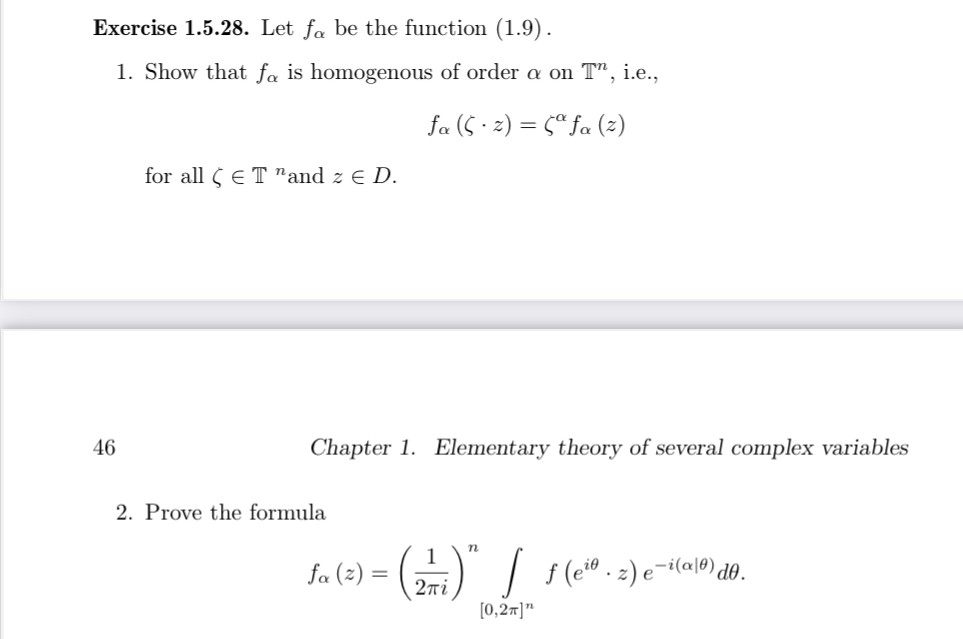Convergence and Holomorphicity of Series in Reinhardt Domains within Complex Analysis
Let $D \in \mathbb{C^n}$ be a Reinhardt domain and $f \in \mathcal{O}(D)$. For every $\alpha \in \mathbb{Z}^n$ define \[f_\alpha : D \to \mathbb{C}, z \mapsto \left(\frac{1}{2\pi i}\right)^{n}\int\limits_{\mathbb{T}^n}\frac{f(\zeta \cdot z)}{\zeta^{\alpha +1}}d\zeta (1.9) \] where $\zeta \cdot z = (\zeta_1z_1, ..., \zeta_nz_n).$ Then $f_\alpha \in \mathcal{O}(D)$ and the series $\sum\limits_{\alpha \in \mathbb{Z}^n}f_{\alpha}(z)$ converges compactly on $D$ towards $f$.
Prove the following.

The answer is accepted.
Join Matchmaticians Affiliate Marketing
Program to earn up to a 50% commission on every question that your affiliated users ask or answer.
- accepted
- 1284 views
- $40.00
Related Questions
- Two exercises in complex analysis
- Sigma-Algebra Generated by Unitary Subsets and Its Measurable Functions
- Compute $$\oint_{|z-2|=2} \frac{\cos e^z}{z^2-4}dz$$
- Complex Variables
- Fixed points of analytic complex functions on unit disk $\mathbb{D}$
- Exercise 4.33 from Spivak's Calculus on Manifolds.
- Complex Numbers, Polar Form, De Moivre's Formula
- Derivative Hadamard Product

